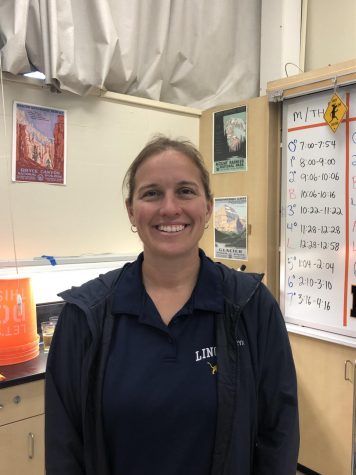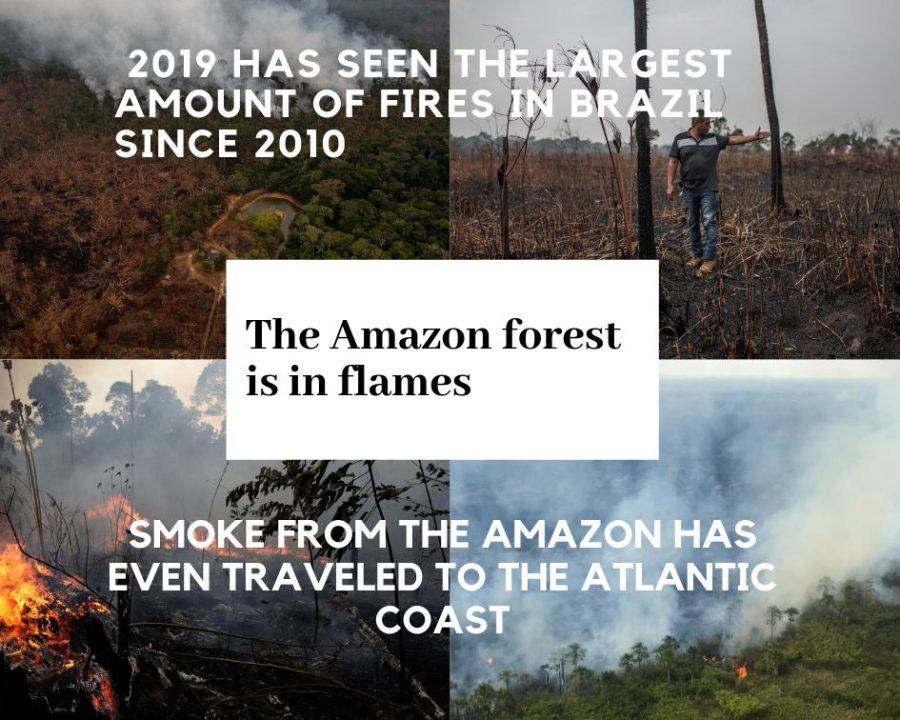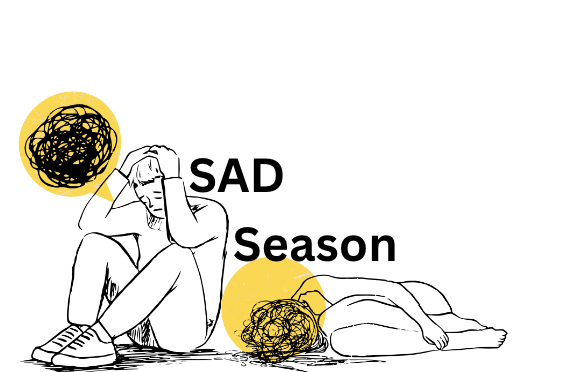The Amazon: Our Lungs
The Amazon is the world’s largest rain forest, situated across eight countries and covering 40% of South America. According to CNN, “More than 30 million people live in the Amazon, which is also home to large numbers of mammals, birds, amphibians and reptiles, most of them unique to the region.”

Now, the Amazon is in flames. During July and August, dry seasons in Brazil, wildfires are common in Amazon; however, fires are also being intentionally set by farmers trying to clear land to make room for cattle. Ms. Berryhill, Lincoln’s Biology and Biology Honors teacher, says, “I understand people need to provide for their family, but there has to be alternate ways of doing that. They’re being incredibly selfish. Globally, we all need this space.”
The INPE, Brazil’s National Institute for Space Research, reports that deforestation has increased by 80% this year when compared to the same time last year. Though Brazil is receiving most of the media attention since 2/3 of the forest is in Brazil, Paraguay, Bolivia, and Peru are also suffering the consequences. The European Union’s satellite shows that the smoke from the fire is spreading all along Brazil and even spreading into the neighboring countries.
The Amazon rain forest, home to countless species of animals and plants, has a high amount of photosynthesis occurring in the area, resulting in a large output of oxygen. “What a lot of people don’t recognize is that through photosynthesis, carbon dioxide is also being removed from the atmosphere,” Ms. Berryhill says, “With the fire going on, you have that coupled with a lack of oxygen, and that is definitely a connection to climate change.”
The forest, often referred to as the earth’s lungs, produces 20% of the earth’s oxygen. “We have to take whatever measures are necessary to stop the fire,” Ms. Berryhill says, “ We’re not just thinking about our own needs as human beings. That area is so rich in biodiversity; just think of what we could lose if we lose this biodiversity.”
As residents of California, we are not yet experiencing the aftermath of this fire, but when we do, it will be too late. As students of Lincoln High, we can host fundraisers to raise money for the cost of putting out the fire, or even donate to existing foundations, such as http://www.rainforestfoundation.org and www.amazonwatch.org. To help prevent climate change, we can advocate for driving less or using eco-friendly electric cars, and walking more. “We might not ever see the Amazon forest, or access it,” Ms. Berryhill says, “but it’s part of our world and we need it.”
Michelle Lu is a freshman at Lincoln High School. She was born in Shanghai, China and moved to California when she was two years old. Michelle now lives...








